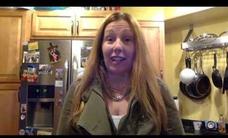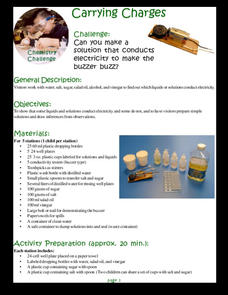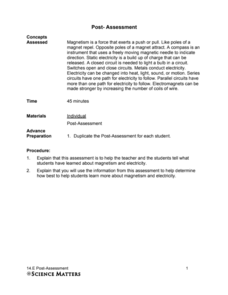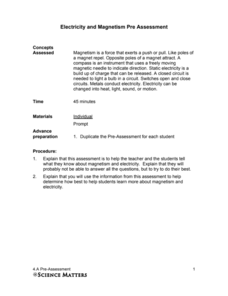PBS
Cloud Clues
It's cloudy with a good chance of learning! An inquiry-based lesson begins with an exploration of transparent, translucent, and opaque materials. Young scientists then connect their learning to the different cloud types as they take the...
American Chemical Society
Heat - Energy on the Move
Turn up the heat. Individuals conduct two experiments to observe the difference between heated water and air versus cold water and air. Using food coloring, pupils observe the movement of the molecules in the two temperatures of water. A...
DiscoverE
At Home: Keep a Cube Activity
Let cooler heads prevail. Future engineers first learn about heat transfer and insulation. They then design and build a contraption that will prevent an ice cube from melting for as long as possible.
Museum of Science
City Circuit
Here's an electric lesson on electricity. Pupils create an electric circuit to model a city's electric system. They then test out different materials to see whether they are conductors of electricity.
Museum of Science
Hot Air Balloon
It is more than just blowing hot air. Pupils first build a hot air balloon out of tissue paper by cutting enough panels of tissue paper to form a balloon shape and glue the panels together. Using a hot air gun, individuals then inflate...
Museum of Science
Circuit Board
Light up the solutions. By following a set of directions, pupils build a circuit board with six different circuits. Learners use the circuit board to create a matching activity by connecting the questions to the correct answers via a...
NASA
Providing Light for Your Plants
Using a guided instructional activity, pupils learn about what it takes to make a circuit along with a switch. They build a complete circuit under the direction from the teacher and identify each of the elements of the circuit. Scholars...
University of Waikato
Make and Use a Hydrophone
Using a home-built hydrophone, pupils investigate how things sound in water. Learners listen to sounds created in air and then compare that to the same sound picked up by the hydrophone. Individuals compare the loudness and the pitch of...
Sciencenter
Carrying Charges
What's all the buzz about electricity? Scholars take part in a scientific activity to test the conductivity of liquids and solutions. They first see if water, salad oil, alcohol, and vinegar cause a buzzer to buzz when electrodes are...
Science Matters
Post Assessment: Magnetism and Electricity
Time to know what they know! The final installment of a 14-lesson unit assesses the class's understanding of magnetism and electricity concepts. Items include both multiple-choice and open-ended questions on magnetic fields, electric...
Science Matters
Motors
It's time to get moving! The 13th instructional activity in a 14-part unit on electricity and magnetism explores the relationship between electricity and mechanical energy. Budding scientists build motors and experiment with different...
Science Matters
Hot Wire S’mores
The proof is in the marshmallows. Believing that electric energy can transform into heat energy can be abstract, but a hands-on lesson gives pupils a concrete example. Young scientists cut marshmallows with copper wires before and...
Science Matters
Electromagnets
Classes are sure to get all wrapped up in an attractive lesson! Young scientists learn how to combine electricity and magnetism as they create electromagnets. They create their own electromagnets and collect data on their strength as...
Science Matters
Parallel Circuits
The lights don't always go out when the switch is flipped. The 10th lesson in a series of 14 helps learners build a conceptual understanding of the flow of electricity through a parallel circuit. They then build their own parallel...
Science Matters
Electricity and Magnetism Formative Assessment #2
Leave it to science to get scholars out of a jam. Young scientists use what they've learned about electricity and magnetism in the previous eight lessons in the series to build tools that will allow them to find their way out of the...
Science Matters
Series Circuit and Switches
Lights out! Scholars build on their understanding of a simple circuit by adding a switch and creating schematic drawings. The eighth activity in a series of 14 has pupils use everyday materials to create circuits and make observations as...
Science Matters
Conductors and Insulators
Get that energy flowing while classes study conductors and insulators. Using a simple circuit, learners test different materials to determine the strength of conductivity. They use their results to classify materials as conductors or...
Science Matters
Static Electricity
Working with static electricity is sure to give the class a charge! Budding scientists experiment with balloons and different materials to discover how to create static electricity. They learn about the transfer of electrons and the...
Science Matters
Electricity and Magnetism Formative Assessment #1
A formative assessment is a great tool for planning further instruction. The fifth lesson of a 14-part series exploring magnetism and electricity provides questions to gauge current understanding of magnetic fields, compasses, and forces...
Science Matters
Magnetic Fields: Making a Compass
What better way to understand how an object works than to make one! Learners take what they learned in the previous lessons and construct their own compasses. Using a needle, water, and styrofoam, they build and test compasses and verify...
Science Matters
Magnetic Fields: The Earth Acts as a Giant Magnet
Attract learners to an interesting instructional activity! The third in a 14-part series of lessons on electricity and magnetism uses a hands-on approach to exploring magnetic fields. Scholars experiment with a compass to test Earth's...
Science Matters
May the Magnetic Force Be with You
Attraction and repulsive forces might seem mysterious to young learners. Have your classes experiment with these forces in the second installment of a 14-part unit on magnetism and electricity. Individuals test different objects in the...
Science Matters
Electricity and Magnetism Pre-Assessment
How much do your classes know about electricity and magnetism? A complete elementary unit on the topic begins with a pre-assessment to gauge their understanding prior to instruction. Items include questions about the properties of...
Cornell Lab of Ornithology
Amazing Birds
What's so amazing about birds? Find out just how amazing birds are with a physics of animal behavior unit created by Cornell Lab of Ornithology. Have learners explore and tap into their observational skills and notice how birds fly, what...

























